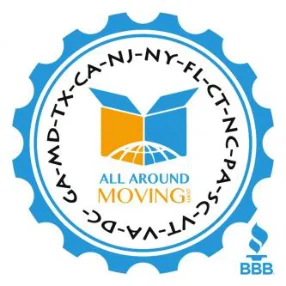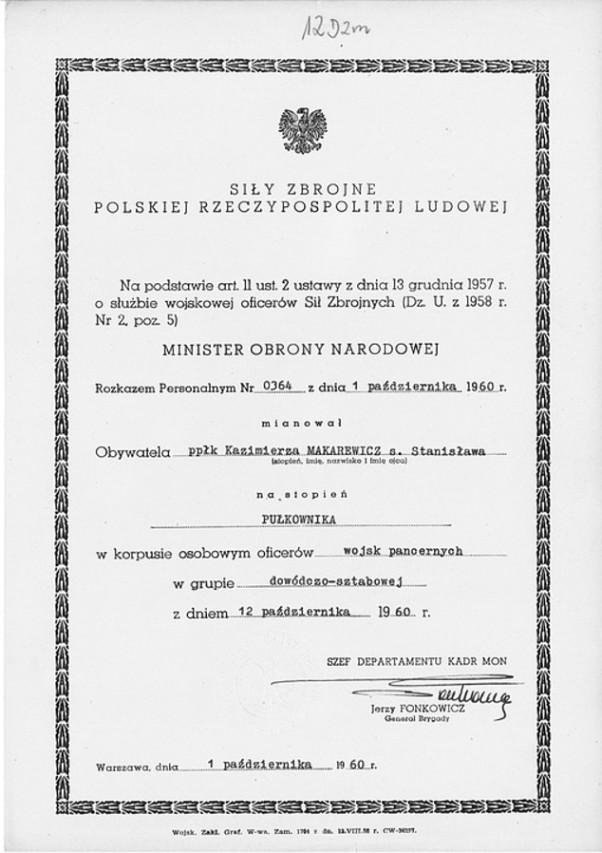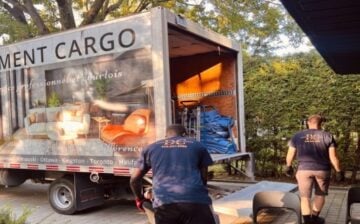You’ve finally decided to make the big leap: you’re moving overseas. Whether it’s for work, education, retirement, or just a fresh start, an international move brings both excitement and stress. You’ve researched your destination, packed up your belongings, and booked a shipping container. But amid all the boxes and logistics, there’s one crucial task that’s often overlooked: document translation.
In the rush to organize flights, find housing, and coordinate with movers, many people forget that translated paperwork can make or break their move. From customs clearance to legal compliance, having your essential documents professionally translated isn’t just helpful; it’s often mandatory.
In this guide, we’ll explain why translating your documents is as essential as packing your toothbrush, outline the key documents you’ll need, explore your translation options, and offer tips to ensure everything is accurate and compliant. Because in international relocation, a missing translation can delay you more than a missing box.
Why Document Translation Matters When Moving Abroad
Smooth Customs Clearance
Imagine you’ve shipped your household items in a container to your new country. Everything arrives, only to sit at customs for days or even weeks because your bill of lading or packing list isn’t in the official language.
Customs officers rely heavily on documentation to verify the contents of shipments. Without accurate translations, your shipment might be flagged for extra inspection, delayed, or even rejected.
According to the World Customs Organization, inefficiencies at border clearance cost global trade billions annually, and unclear or incomplete paperwork is one of the most cited causes.
Avoiding Costly Delays
Let’s say your moving documents include descriptions of personal effects, invoices, and receipts. If these aren’t translated properly, customs may assume your shipment is commercial rather than personal, leading to tariffs, taxes, or even confiscation.
Mistakes like these aren’t just inconvenient; they can be expensive. The average demurrage fee for delayed containers is around $75–$150 per day, depending on the port.
And at the heart of the problem is not just translation, it’s understanding.
“So much of what we do in AI is invisible – models, weights, evaluation sets. But the impact? That’s visible in the quiet moments: When a lawyer trusts a translated contract enough to send it. When a small business owner feels confident going global. When a user opens our tool, gives it direction, and gets back something that sounds like them. That’s not ‘output.’ That’s understanding.”
— Rachelle Garcia, Head of AI at Tomedes, in her LinkedIn article titled “AI Adapts: Why Translation Needs More Than Just Output.”
Translation that merely converts words is not enough, especially when you’re facing international customs and legal systems. It must convey your intention clearly, or you risk delays, mistrust, or even denied entry of your goods.
Meeting Legal and Regulatory Requirements
Many countries legally require certain documents to be translated into the national or official language, especially when it comes to visas, residency permits, and customs paperwork.
For example:
- Spain requires certified translations (sworn translators) for legal and immigration documents.
- France mandates French translations for health and education records if enrolling in local services.
- The UAE insists on Arabic translations for work permits, contracts, and lease agreements.
Failing to provide the correct translations can result in:
- Rejected visa applications
- Denied entry of household goods
- Inability to access healthcare or education
Preventing Miscommunication
Customs officials, shipping agents, and government authorities are not translators. Submitting documents in a foreign language without translation increases the risk of misunderstandings, errors, or incorrect data entry.
For instance, an incorrectly translated “packing list” could result in customs labeling your kitchen appliances as electronics, triggering import duties you shouldn’t have to pay.
Clarity in communication is critical, and accurate translation is the bridge.
Essential Documents to Translate Before You Move
To avoid issues at customs, with legal authorities, or at your new job or school, make sure you translate the following key categories of documents:
1. Personal Identification
These are often required for visas, residency applications, and identification in your new country.
- Passports (bio-data page)
- Visas and permits
- Birth certificates
- Marriage certificates
- Divorce or custody papers (if applicable)
Tip: Many countries require certified translations of identification documents for legal purposes.
2. Shipping & Customs Documents
These help customs determine what you’re importing and whether it’s subject to taxes or restrictions.
- Bill of lading
- Commercial invoice
- Packing list
- Import/export declarations
- Certificates of origin
3. Property & Financial Records
For renting, buying property, or accessing financial services abroad:
- Lease or rental agreements
- Property deeds or titles
- Home insurance documents
- Bank statements
- Tax returns (especially if you’re transferring tax residency)
4. Medical & Education Records
To access healthcare, enroll in school, or transfer academic credits:
- Immunization records
- Prescription histories
- Medical diagnoses or chronic illness documentation
- School transcripts and diplomas
- Letters of recommendation or academic placement
5. Employment & Business Documents
These are crucial if you’re moving for work or plan to conduct business abroad:
- Employment contracts
- Offer letters
- Work permits
- Letters of reference
- Professional licenses and certifications
- Company incorporation or tax documents (for entrepreneurs)
How to Translate Your Moving Documents
Once you’ve identified the documents that need translation, you have two main paths to choose from: professional services and AI-powered translation tools. For the best results, many expats opt for a hybrid approach.
Option 1: Professional Translation Services
This is the gold standard, especially for anything legal, official, or certified.
Benefits:
- Certified and notarized translations
- Native linguists with subject-matter expertise
- Guaranteed compliance with country-specific regulations
- Reliable formatting and presentation
For example, Tomedes, a leading translation company, offers certified document translations for moving abroad, including notarization when required. With industry-specific translators and experience working with immigration and customs agencies worldwide, they provide peace of mind.
When to use this option:
- Legal documents
- Identification and immigration forms
- Customs documents
- Education or employment records requiring official recognition
Option 2: AI-Powered Translation Tools
AI translation tools like MachineTranslation.com are transforming the way expats and global professionals handle document translation. For less formal, internal, or early-stage tasks, they offer a fast, scalable, and cost-effective solution.
Benefits:
- Translate documents instantly
- Cost-effective for large volumes
- Supports 270+ language pairs
- Allows customization of tone, terminology, and audience
- Preserves original formatting with Download in Original Format (DOCX)
- Processes long documents with Large File Support
- Keeps your data secure with Secure Mode and anonymization
Use cases:
- Draft translations of packing lists, invoices, or customs declarations
- Informational documents like checklists, guides, or email templates
- Previews before professional review or certification
- Translating scanned PDFs, academic records, or legal bundles
- Internal communication or document prep for legal or HR processes
Bonus:
MachineTranslation.com offers Human-in-the-Loop refinement through optional Human Verification, enabling users to have sensitive or public-facing content reviewed by professional linguists.
Plus, with features like the AI Translation Agent with memory (for registered users), glossary tools, segmented bilingual view, and side-by-side engine comparisons, you can streamline your workflow and ensure translation consistency across all your moving documents.
Tips for Ensuring Translation Quality
No matter which method you use, follow these best practices to avoid issues:
- Use certified translators for legal or immigration-related documents.
- Double-check language requirements for your destination country.
- Always retain original versions alongside translated ones.
- Store both digital and physical copies securely.
- Start early; translation can take days or weeks for certified files.
According to a case study on translating defective source texts, structural and substantial errors, such as unclear wording, grammar mistakes, or incomplete information, significantly complicate the process, especially at the initial stage. Addressing these defects early is essential to ensure quality and prevent delays
Final Checklist Before You Ship
Here’s your pre-departure translation checklist to avoid surprises:
- Identified all essential documents for translation
- Completed certified translations where required
- Used AI tools for non-critical documents
- Verified country-specific language and formatting rules
- Stored digital backups of all translations
- Printed multiple physical copies for customs, immigration, and personal use
Conclusion: Translation Is as Critical as Packing
You wouldn’t dream of moving overseas without packing your clothes, valuables, and essentials. So why leave your documents untranslated? The success of your international move doesn’t just depend on what’s in your boxes; it hinges on what’s in your paperwork.
Avoid unnecessary customs delays, legal headaches, or denied applications by translating your essential documents early. With today’s combination of professional translation services and AI-powered tools, there’s no excuse for being unprepared.
Start now. Translate smart. Move confidently.
We hope you found this blog post on Moving Overseas? Why Translating Your Documents Is Important, useful. Be sure to check out our post on Your Friendly Guide to International Shipping Terms for more great tips!
Have Experience in the Moving Industry? Want an Additional Income Stream? Work With All Around Moving!
Relocation and Moving Consultant: Join the Work With Us program! We provide you with the carriers, or you can use your own carriers, and by joining, you could have your own company up and running very fast.
Click here to learn more about how a nominal one-time start-up fee gives you the “key” to having your business. We have been in business for over 20 years, and you could be a part of it.







